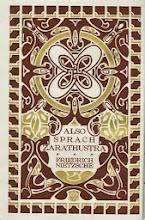Derrida's Duality
SO i was reading habermas transcendence from within, transcendence in this world article, and I decided that I needed to start reading his stanford encyclopedia of philosophy entry (plato.stanford.edu) and from that, I found out that he debated with Derrida and that they were friends up until the latter's death in 2004 from cancer. since i've never studied Derrida and I've heard so much about him, I finally decided to plunge through his Stanford entry as well and I'm glad I did, especially the part I just read about the separation between the hearer and the speaker in a person's mind, maybe this is the beginning and the secret of duality that I've been searching and looking for for 15 years now, since first reading Kryon's book, it's definitely food for thought but I thought I would share with you all my crib notes on derrida that i'm making my timelines for my exams for, enjoy, i'll also include my habermas one's below, which I've created today and which I will add to over the next few days, eureka!
Jürgen Habermas (1929-) German – Greatest 2nd Generation Frankfurt School Critical Theorist, critical theory is not unique because it endorses this or that theory or method but because it unites the normative with the empirical, philosophical fallout from Heideggar’s silence about rejecting Nazism led him to Anglo-Analytical Philosophy especially pragmatism and participatory democracy, methodological atheism of radical demythologization, counterculture student protests of the 60’s led him to criticize the elitist technocracy of scientific political and bureaucratic experts because by reducing all questions about goodness and morality and policy to these experts, these elitists eliminate the need for public democratic dialogue about values which thereby depoliticizes the non-expert population, but this doesn’t necessarily lead to oppressive social domination like Horkheimer and Adorno thought, ideal speech situation


<< Home